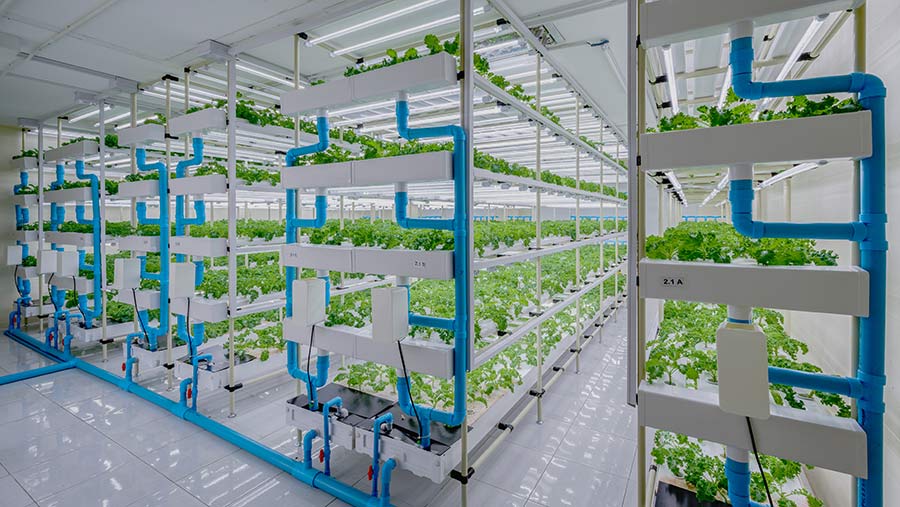Opinion: Vertical farming has key role for future food security
 © Pongpichet/Adobe Stock
© Pongpichet/Adobe Stock As the festive season approaches, you might be considering dusting off some of those traditional winter recipes, or even considering something a bit more exotic.
In recent years, we have taken that freedom of choice for granted. But the past 12 months have rocked that reality, and we have seen prolonged spells with gaps on supermarket fruit and veg shelves.
See also: Why ‘vertical’ farming is growing in the UK
About the author

David Farquhar is the chief executive of Intelligent Growth Solutions.
Indeed, the first half of this year had all the hallmarks of a system unable to cope with the “trilemma” of extreme weather, more expensive farm inputs, and post-Brexit red tape.
We need greater food security in the UK, and if we are to achieve that, we must give our farmers the tools they need to cope with the effects of climate change, in order to produce the crops consumers want, more consistently, year-round.
The government also needs to start looking ahead at solutions to bring greater food security to our shores.
We don’t have to look too far for reminders on how crucial the need is. Many parts of the UK experienced the wettest July on record, leaving farmers scrambling to get harvests in on the few dry days.
This put immense pressure on both farmers and their employees, while other crops, such as salads and soft fruits, struggled in unseasonable conditions.
Indoor food production
So we’ve established that the weather is growing increasingly more disagreeable, but how do we reconcile this with the need to produce more food at home in the UK?
Answer: We bring more of that production indoors. And the tech required to do that is already available – we just need to equip farmers with it.
The integration of vertical farms into the agricultural toolkit – whether producing full seed-to-harvest crops or growing high-quality seedlings to support more traditional forms of growing – can provide growers with a unique blend of technology, sustainability and efficiency.
That can play a significant role in enhancing the UK’s food security, by reducing reliance on imports and putting production firmly back into the hands of local growers.
Urban, rural or island-based “growth towers” can be built on any unused land to provide optimal environmental conditions for a huge number of crops.
Managed remotely, these systems are designed to speed up growth, maximise output and produce many times the volume possible from the equivalent acreage of land (or glasshouses) using traditional techniques.
Produce can be grown close to the consumer, not only reducing food miles and waste, but increasing shelf-life.
Imports
And here’s the kicker – the government’s Border Target Operating Model is now set to bring a new round of controls on goods from the EU from early 2024.
This will increase costs for imports to the UK, leading to even more expensive food, at a time when we are already dealing with a cost-of-living crisis, high inflation and wallet-bursting interest rates.
These new import rules could also add more delays in getting fresh produce on our supermarket shelves.
Furthermore, it is estimated the impending ban on the use of peat in glasshouses will cost £1bn in lost output.
Vertical farms do not need to use peat. They can also operate side-by-side with traditional techniques, offering growers a “hybrid” approach to producing more food (and trees) for us all.
However, successful implementation will require collaboration between stakeholders, investment in development and, ultimately, a commitment to more sustainable agricultural practices from our policymakers.
